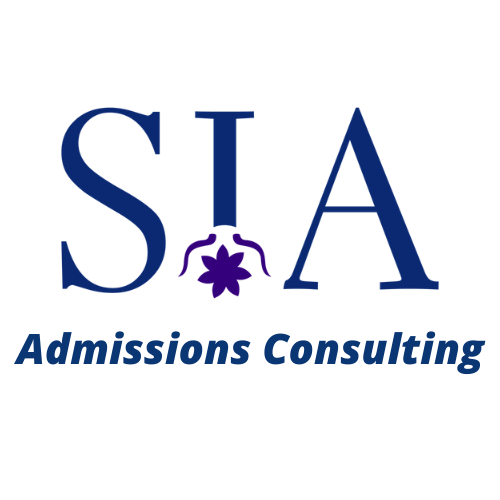The interview is between Martina Todorova of Unimy Prep and Susan Berishaj of Sia Admissions and focuses on the MBA interview preparation. A few highlights of the questions answered in the podcast are listed below.
Q: What role do interviews play in the MBA application process?
A: Business schools understand that essays have been crafted with great reflection, putting forth their best application. The interview is really important as it allows the admission committees to understand how applicants think on their feet. In an interview, the interviewer looks for:
(i) fit - the interviewer wants to understand how the applicant fits the school's culture, and presence is an important piece of a successful interview;
(ii) clear directionality (goals) - the interviewer wants to understand that the applicant has direction and understands the complexity of getting to their goals (having conducted due diligence) ;
(iii) there is a clear interest in the program - given yield is important in ranking, the interviewer wants to really make sure that the applicant is interested in the program. Sometimes, really strong candidates don’t gain admission because they don’t reflect a real interest in the program.
Q: What are the mistakes applicants make in their interviews?
A: The greatest mistake is not going to the interview prepared. An applicant must look at the interview from the perspective of the admission committee — if they showed up unprepared to a high-stakes MBA interview, how are they going to show up and represent the school in their interview with employers?
The second greatest mistake applicants make is thinking they know their story. Yes, an applicant submitted their application, but the application's answers are very different than how one communicates in an interview. Furthermore, applicants need more examples than what they have shared in their application materials. No one ever knows what questions are going to be asked, and in most instances, once unprepared applicants stumble, they get flustered and forget what they had originally intended to say, making it a very unpleasant experience.
Q: What's the proper way to answer "Tell me about yourself"?
A: In this process, story is really important: and how an applicant tells their story is the biggest challenge. The interviewer has the applicant’s resume in front of them and sees their experiences, so the story really gives color to that entire experience.
The “Tell me about yourself” goes beyond what's in black and white on the resume. I like to think of it as filling in the white space in the resume - the details that one would never include in a resume but are the backdrop from which every decision was made. So applicants should prepare to answer this question by first identifying their decisions between each job, extracurricular, educational opportunity, etc.. Then, they should identify a theme that is evident and anchor their answer through that lens.
Q: Tips on “What are your strengths and weaknesses?”
Many applicants are asked this question, and everyone should prepare by identifying 3-5 strengths and 1-2 weaknesses. Sometimes applicants struggle to identify either or both, and in those situations, we suggest that they as their supervisors, colleagues, and friends. Once they have a repository of strengths and weaknesses, then they should look for patterns that help them anchor their examples. When it comes to strengths, think of examples of how you learn, how you engage with others, how you work in teams, and how you solve problems.
Weakness should not result in red flags. Applicants should find an area in their development that is a work in progress - a weakness that they are conscientious of and that they have been working toward improving.
Q: Tips on “How will you contribute?”
This is a very important question that enables admission teams to understand how the applicant will leverage the resources at the school and be an engaged citizen. A strong answer to this question requires vivid details that convince the interviewer that the applicant has envisioned their future at the school.
To successfully answer this question, we suggest that the applicant anchor their responses on past examples that reflect their history of engagement. Then leverage the conversations with students and alumni to identify the specifics of how the applicants look to contribute to the classroom discussion, club activities and events, and community building.
Listen to the full episode that addresses these and additional questions in more detail.

